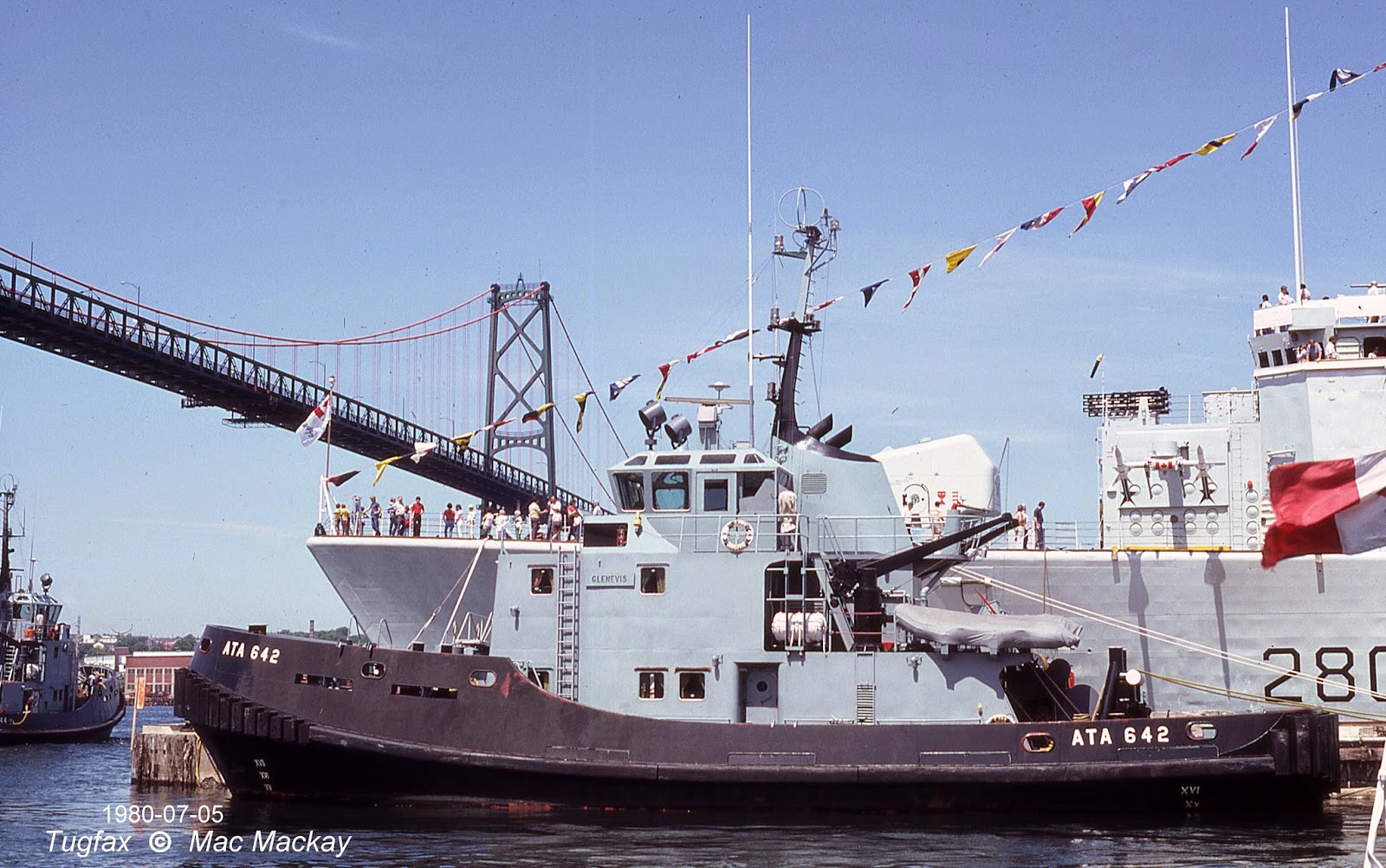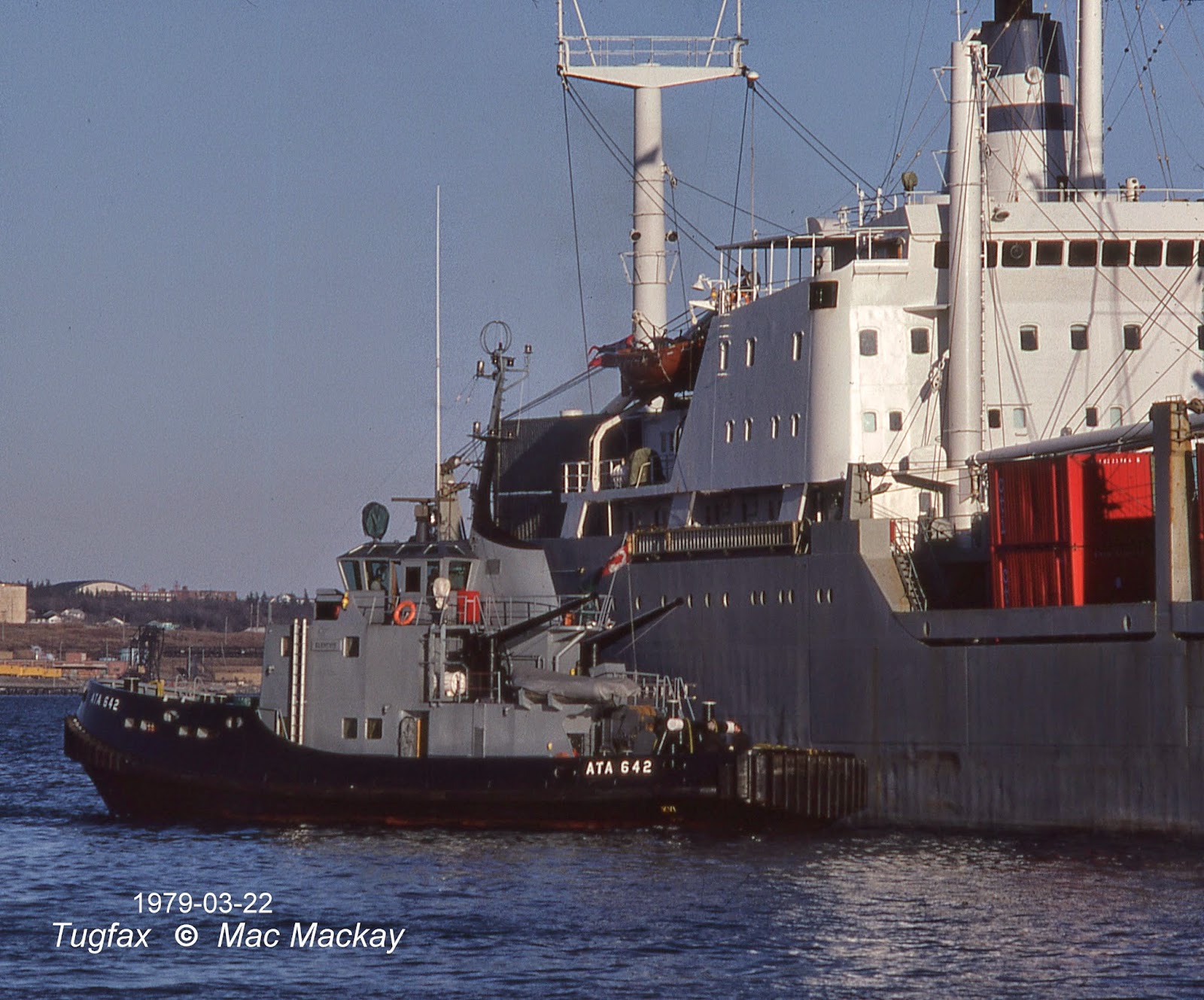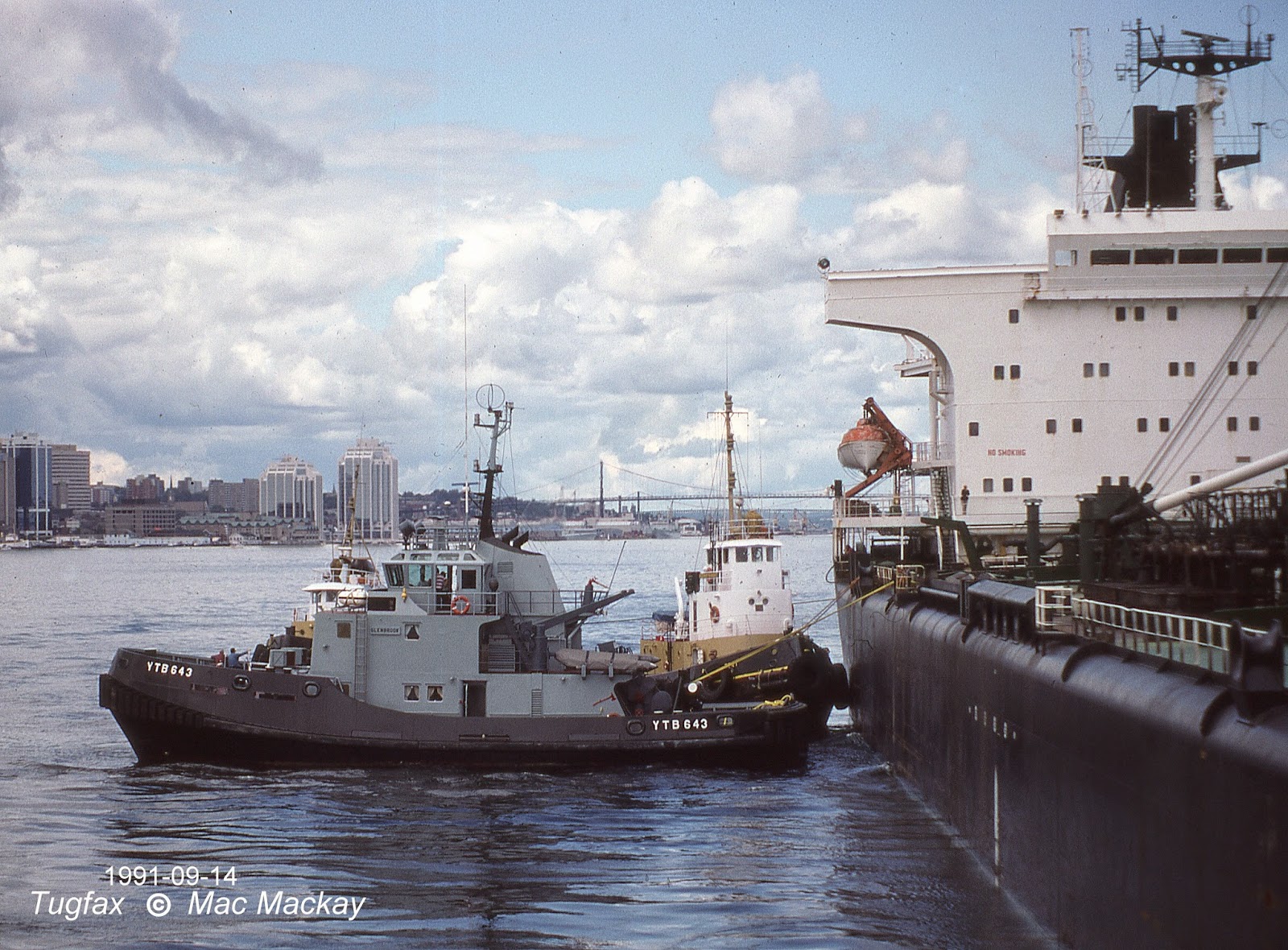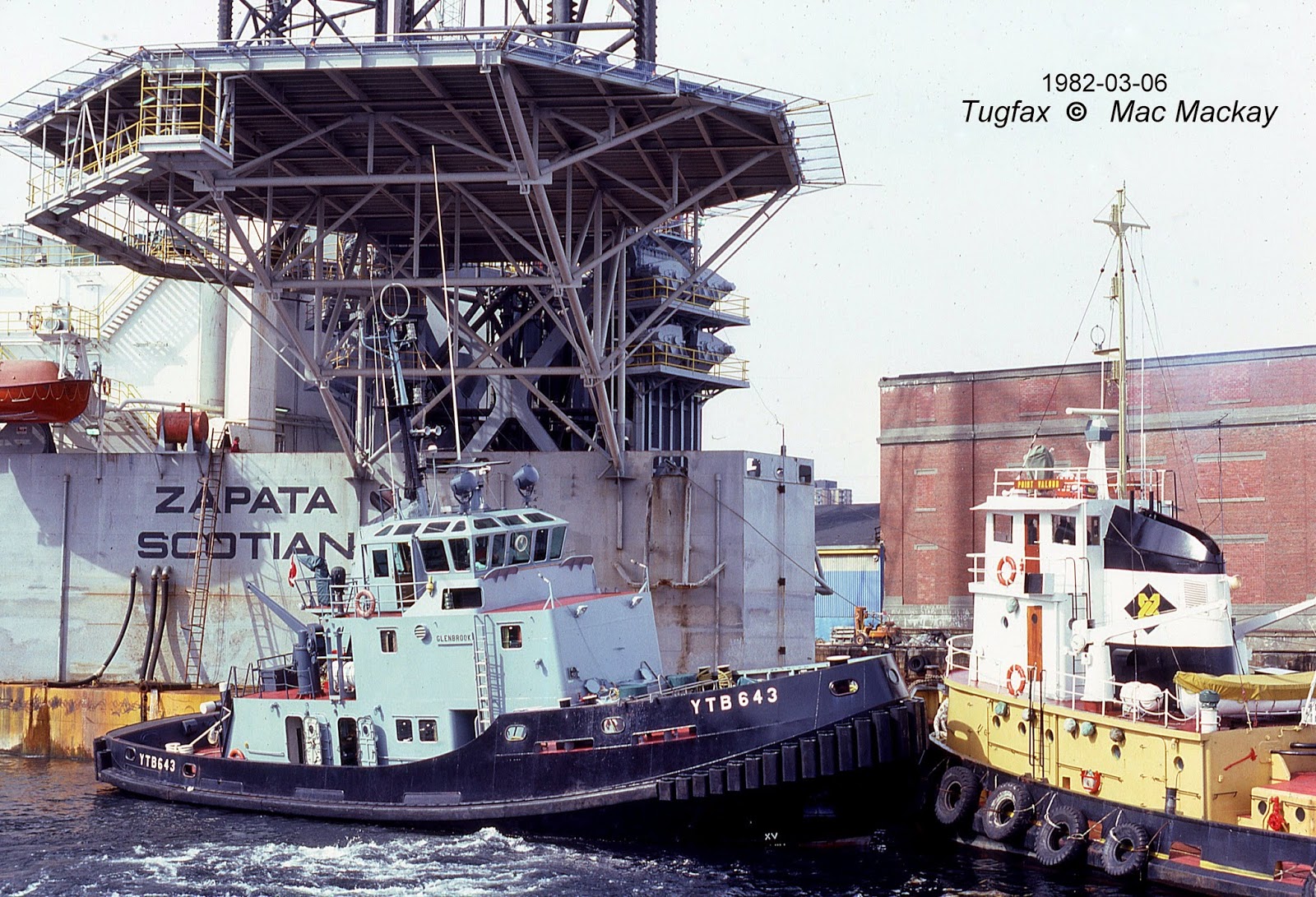Atlantic Towing Ltd manages to carry out harbour berthing and even some outside work with the three ASD tugs normally based in Halifax. From time to time if another tug is needed, they have been able to call on Saint John, NB to send a tug in for a day or or so. However today was a little different.
Faced with shifting an effectively dead ship from anchorage to a pier, the three tugs were not going to be enough. With the tug Atlantic Oak undergoing its 5 year survey in Shelburne, Halifax has already brought in Atlantic Fir from Saint John, and the latter port could not spare another. What to do?
It is not unheard of, but has not been done in years (and never by Atlantic Towing to my knowledge) - they called HMC Dockyard. The Queen's Harbour assigned a Naval Auxiliary tug to lend a hand. Normally working on navy jobs only, with navy pilots, this would be a new experience for the civilian crew.
So early this evening Atlantic Fir, Atlantic Willow and Atlantic Larch were assisted by Glenevis in moving the disabled Australian Spirit from anchorage in Bedford Basin to pier 9C. The ship has no steering capability, having lost its rudder at sea, and there was a breeze picking up. Thanks to Voith-Schneider propulsion Glenevis's high degree of maneuverability makes up to a degree for its modest power of 1750 bhp
Back in the day when ships were smaller, the Glens had comparable horsepower to the local tugs, and were called in more frequently when one of the harbour tugs was out of service or more power was needed.
Faced with shifting an effectively dead ship from anchorage to a pier, the three tugs were not going to be enough. With the tug Atlantic Oak undergoing its 5 year survey in Shelburne, Halifax has already brought in Atlantic Fir from Saint John, and the latter port could not spare another. What to do?
It is not unheard of, but has not been done in years (and never by Atlantic Towing to my knowledge) - they called HMC Dockyard. The Queen's Harbour assigned a Naval Auxiliary tug to lend a hand. Normally working on navy jobs only, with navy pilots, this would be a new experience for the civilian crew.
So early this evening Atlantic Fir, Atlantic Willow and Atlantic Larch were assisted by Glenevis in moving the disabled Australian Spirit from anchorage in Bedford Basin to pier 9C. The ship has no steering capability, having lost its rudder at sea, and there was a breeze picking up. Thanks to Voith-Schneider propulsion Glenevis's high degree of maneuverability makes up to a degree for its modest power of 1750 bhp
Back in the day when ships were smaller, the Glens had comparable horsepower to the local tugs, and were called in more frequently when one of the harbour tugs was out of service or more power was needed.
Glenevis at her normal berth in HMC Dockyard, although she will not have HMCS Iroquois for company much longer.
Glenevis helps to berth Hoegh Pride in 1979.
Point Vim and Point Vibert in the background get an assist from Glenbrook with the tanker Fina Belgica in 1991. (Photo taken from Point Halifax)
The most notable occasion when Dockyard tugs did civilian work occurred in March 1982 when the oil rig Zapata Scotian on the barge Seacamel 393-11 broke loose from its berth and went adrift in the harbour, threatening the Macdonald Bridge, a Dartmouth office building and the anchored Polish bulker Ziemia Wielkopolska. All three Glens, and St.Charles along with six harbour tugs, three tug/suppliers and the deep sea tugs Shamal and Simoon were all involved in the operation to recover the rig, and eventually get it back alongside the next day when the wind died down.
Glenbrook gives it her all assisting Point Valour in getting the rig back alongside. The Glen's side thrust was especially helpful compared to the local single screw harbour tugs of roughly equivalent horsepower than t could only push or pull on a tow line.
Navy tugs were deemed to have saved the day, but the Queen's Harbour Master declined to put in a salvage claim.
.



